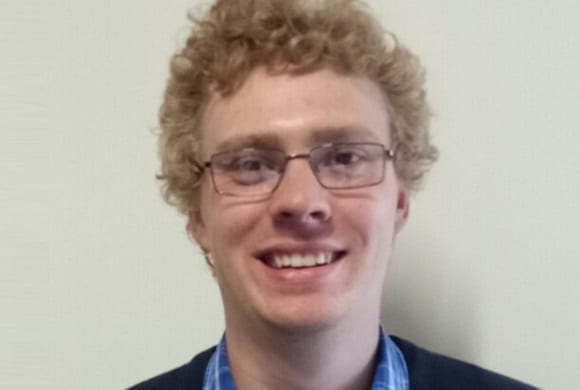
Jake Mazur
Cancer Research
‘Natural therapeutics coupled with nanotechnology; advancing GBM treatment efficiency in invertebrate and cellular models’
Deakin University, VIC
Awarded 2018
Rob Henry Memorial PhD Scholarship
“The idea of using developing technology to overcome treatment limitations in such a devastating disease really sparked my excitement.”
Researcher Profile
Throughout my VCE at St. Joseph’s College Ferntree Gully, I developed a passion for biology. Unsure of my life’s direction, I pursued this passion, culminating in the commencement of a Biomedical Science degree at University of Ballarat (now Federation University). Completing my Bachelor’s in 2015, I soon undertook an Honours year at Deakin University in Geelong, after which I was accepted into the PhD program.
Aged 22, I commenced my doctorate, taught university classes, providing occasional lectures, and became a published author, achievements I’m very proud of. I now have the pleasure of being one of Australian Rotary Health’s researchers.
Project Summary
This study aims to investigate the use of naturally derived therapeutics against GBM, specifically focusing upon their combination with nanoparticles to increase anti-cancer efficacy. With nanoparticles being incredibly small structures capable of carrying anti-cancer drugs throughout the body, they offer the potential to increase therapeutic accumulation within the brain, thereby increasing anti-cancer drug action against GBM tumours. This is part of a developing field known as nanomedicine, an approach which has integrated into much GBM research.
The opening aim of this project is to synthesize Guar Gum nanoparticles to enhance anti-cancer therapeutic delivery to the brain. With Guar Gum being naturally derived from plant sources, in addition to its use in the food industry, it will be utilized within this project to provide safe and easily degradable nanoparticles. Once successfully created, much effort will surround understanding the properties of the nanoparticles, including size and shape. Next the nanoparticles will be tested to see if they can access the brain of insects. As insect antenna are both structurally and functionally similar to the human nose, this will provide an understanding as to whether the nanoparticles can access the brain through this route, being suggestive of their potential to reach the human brain after nasal inhalation. Succeeding this, the research aims to investigate and confirm the action of natural anti-cancer therapeutics against GBM through growing and testing upon cancers within the laboratory. Lastly, the project will investigate the benefits of combining the nanoparticles and therapeutics together against the GBM cancer.
Supervisors: Professor Jagat Kanwar, Dr Rupinder Kanwar and Dr Sarah Shigdar